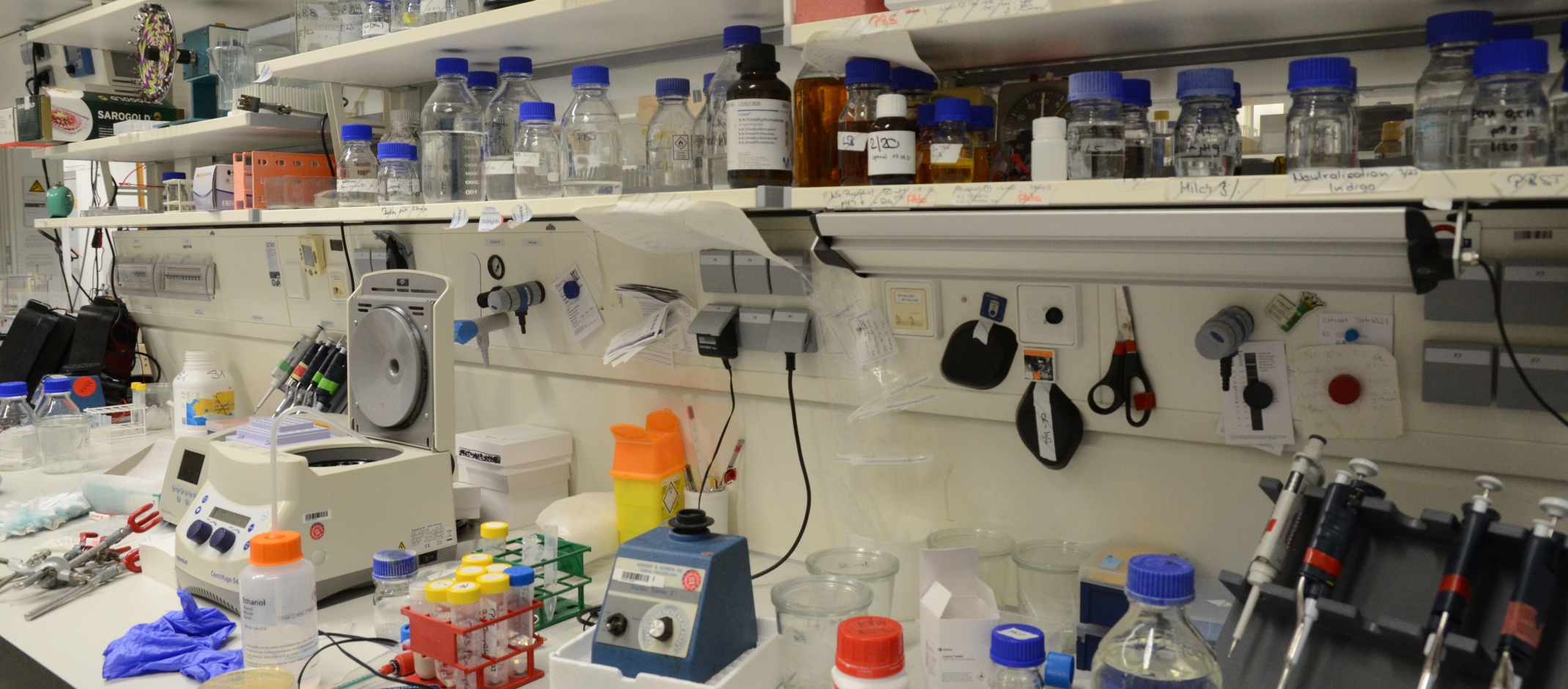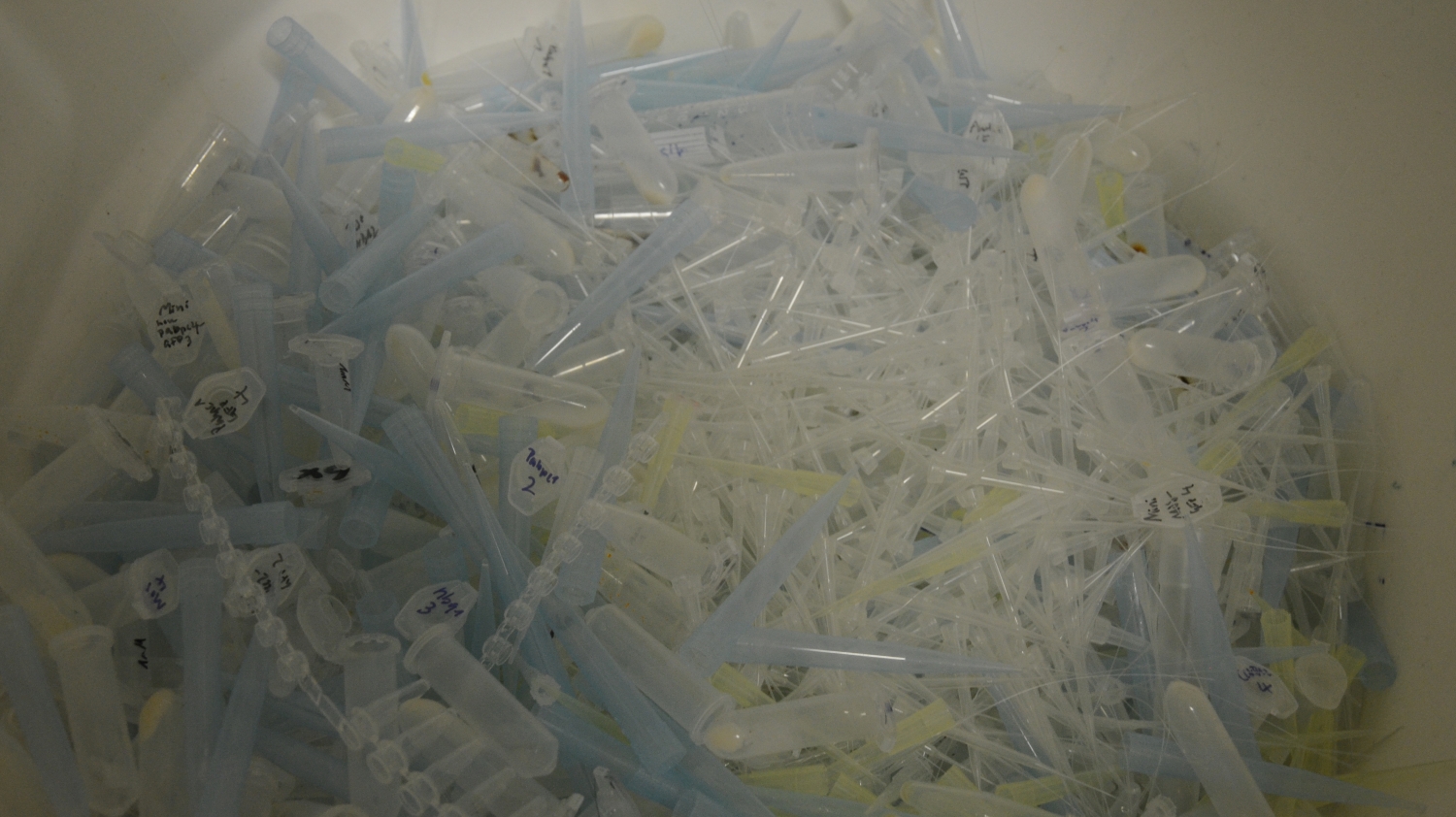Laboratories on the way to more sustainability

Bianca Schell is involved in the scientific pilot project EFFEKTIVA (in German) at the University of Konstanz aiming to help researchers conserve energy. In addition to this – and along with Nico Bruns from TU Darmstadt – she has published a study comparing programmes to increase laboratory sustainability. Bianca Schell sees a great need worldwide to take action, for example in the area of recycling: "At the moment, plastic waste from chemical and biological labs is only recycled to a very limited extent". The reason is that contaminated waste is considered to be hazardous waste which is disposed of by incineration. "However, in recent years, the awareness has grown that labs need to – and can – pay more attention to sustainability", she adds. Her suggestions for key steps to take:
Improve waste separation
Bianca Schell believes it is particularly important to reduce waste as far as possible and to recycle the rest. "Lab materials are often not disposed of separately. When paper towels, disposable gloves and plastic end up in the same waste bin, that is a lot of waste that cannot be recycled", the biochemist explains. "Our approach is to separate out materials made from the plastics polystyrene and polypropylene that are only biologically contaminated. After decontaminating each type of plastic individually, the sorted plastics can be recycled".
© University of Konstanz, Marion VoigtmannSeparately collecting the laboratory plastics polystyrene and polypropylene (here in the bin) allows each plastic type to be decontaminated and recycled individually afterwards.
Reduce energy consumption
According to Bianca Schell, scientific laboratories in research facilities – along with data centres – require a particularly large amount of energy: five to ten times as much as comparable office spaces and five times more water. 30 to 70 percent of this energy is used by ventilation systems. This is why the biochemist sees particularly large potential for saving energy in this area. For example, reducing the air exchange rates in laboratories – how often the air is exchanged per hour – can lead to a 25 percent savings in energy usage for the corresponding building. This step can be implemented in many laboratories without compromising safety.
"Ultra-low temperature freezers can be set to -70°C instead of -80°C without affecting the samples stored there", Bianca Schell explains. "Some laboratories at the University of Konstanz have already taken this step. And a global database shows that storing samples at -70°C does not impact their quality".
Bianca Schell
In addition to energy usage in labs, Bianca Schell says the largest CO2 footprint from research comes from purchasing. Thus, sustainable purchasing practices are another important measure that laboratories should take.
Comparison of laboratory sustainability programmes
In the study "Lab Sustainability Programs LEAF and My Green Lab: impact, user experience & suitability", Nico Bruns and Bianca Schell compared the two market leaders in sustainability programmes for laboratories. Both programmes – Laboratory Efficiency Assessment Framework (LEAF) and My Green Lab (MGL) – include a comprehensive catalogue of measures to increase sustainability in laboratories and conclude with a certification. "Until now, no one had completed a scientific comparison of the two programmes" Schell says. The study analyzes the strengths and weaknesses of both programmes, and the overall results are positive in both cases: "When lab teams take the measures proposed by the programmes seriously, then there is massive potential for them to save energy, CO2 and waste", Bianca Schell explains, "and both programmes strongly motivate staff to pay more attention to sustainability".
Certification level "Green" for University of Konstanz laboratory
Currently about 4,000 laboratories use LEAF and 3,000 MGL worldwide, but, in Germany, only 6 institutions use LEAF and 14 MGL. "This small number of German research institutions is, however, growing rapidly as funding institutions, including the German Research Foundation (DFG), start to include sustainability criteria in the application and selection process", Schell observes. "In the UK, this is already the norm". This makes it all the more remarkable that the laboratory team led by Patrick Müller, a professor of developmental biology at the University of Konstanz, not only completed the MGL programme but also achieved the highest certification level "Green". They reached this goal by making a wide variety of energy-saving adjustments, including participating in the university's laboratory plastic recycling project (in German).
"In many cases, we simply aren't aware of opportunities for reducing energy usage in the lab environment, so there is a lot of potential for savings here. Taking part in a certification programme, just as Patrick Müller's research team did, helps to systematically identify and implement ways to reduce energy usage, CO2 and waste. So go ahead, make your lab as sustainable as possible! This saves money and helps the environment. In many cases, it can also be done very easily", concludes Lukas Schmidt-Mende, a professor of experimental physics and EFFEKTIVA project manager.

